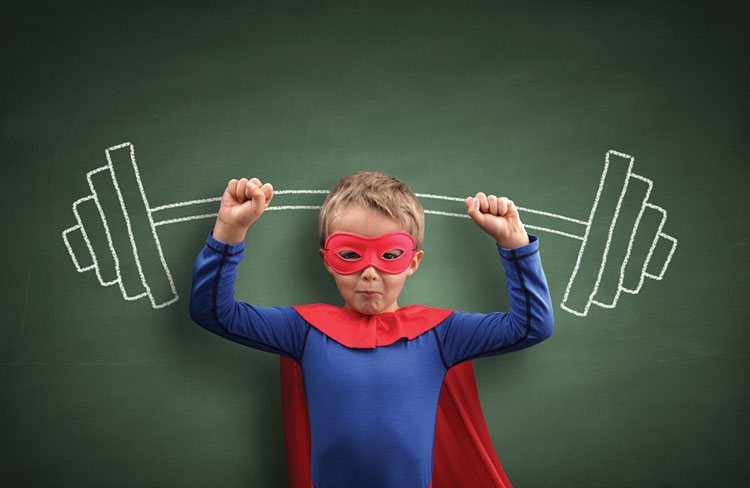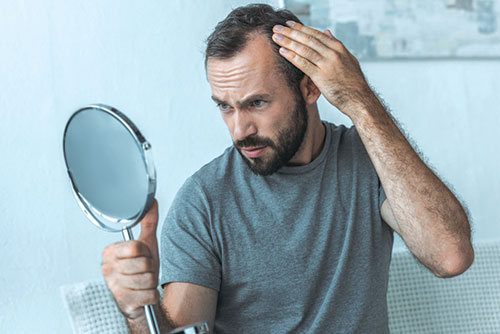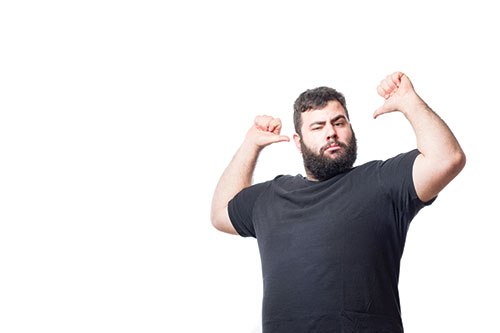We’re loving the body positive ad campaigns being relayed on television and posted on social media. Everyone deserves to feel happy in their bodies, no matter how tall they are, how much they weigh, the colour of their skin, their shapes and features. But, have you noticed that body positivity conversations somehow only seem to surround women?
That means only women have body image issues, right? Wrong. The truth of the matter is men too are insecure about their bodies. But media’s reinforcement of the ideal woman’s body, and the women’s body positivity movement gaining traction, has caused the rise in men’s body image issues to go largely unnoticed.
What don’t men like about their bodies?
Several studies show that there are many aspects of men’s bodies that they aren’t entirely comfortable with. A very common issue that men have is that of a receding hairline, hair fall, and male pattern baldness. Another is height – men who don’t fit the ‘tall’ criteria are often the target of jokes. Then there’s the most common body image issue – weight. While many worry that they weigh too much, a significant number of men are concerned about being skinny and not muscular enough.
Who is to blame?
It’s simple to say that media is to blame for men’s body image issues. But the reality is far more complex. The insecurities are instilled quite early on, as boys are questioned about whether they have their moustache coming in yet, or are asked to flex their muscles. Conversations surrounding how they aren’t growing taller, how their voices still haven’t gotten deeper and how they are scrawny, both at home and in school, make them feel inadequate.

Then there’s the superhero complex. Most boys and young men are heavily invested in the concept of superheroes. But comic books and action figures that are fashioned after superheroes have portrayed six-abed, hyper muscular men as the saviours of the world for decades! These are the images of invincible masculinity that boys and men buy into at a very young age, only to have their insecurities relating to their ‘imperfect’ bodies grow with them.
Eating disorders
A devastating consequence of the unrecognised body shaming that men are subject to are eating disorders like bulimia, anorexia and binge eating. Some young boys are jeered constantly for their skinniness while some are bullied for being fat. Both situations can cause one to have a severely unhealthy relationship with food that is wrought with guilt.
Teenagers and preteens are most prone to developing eating disorders. Young men, just on the brink of adulthood, often purge voluntarily to lose weight and achieve that ideal body.
How can we help?
Extending the body positivity conversation to men’s bodies too is the first step. Men need to hear that no matter what shape and size their bodies are, no one has the right to tell them that they are not good enough. And they should certainly not believe that their bodies are not deserving of their love. While the conversation around men’s body image issues will start slowly, it will catch on urge more men to see how it is the notion that there is one ideal body type is what’s wrong and that there is nothing wrong with their bodies or how they look.
All body types, shapes and sizes are beautiful. And so, the second step entails shifting the focus entirely to health instead of the ‘ideal aesthetic’. While it may be hard to quash reservations that have been inculcated from years of socialisation, the importance of health and fitness must be reinforced at regular intervals, to ensure that no drastic measures that will inevitably cause more harm than good are resorted to.
The third step is acceptance. Not only must we happily accept the bodies that we are in, we must also accept and appreciate the ones around us. Almost everyone has at least one body image issue that they are not at peace with. So, instead of joking based on someone’s appearance, stop yourself, say a kind word, complement and appreciate them. This will make a world of difference, and will slowly but surely result in a ripple effect.



